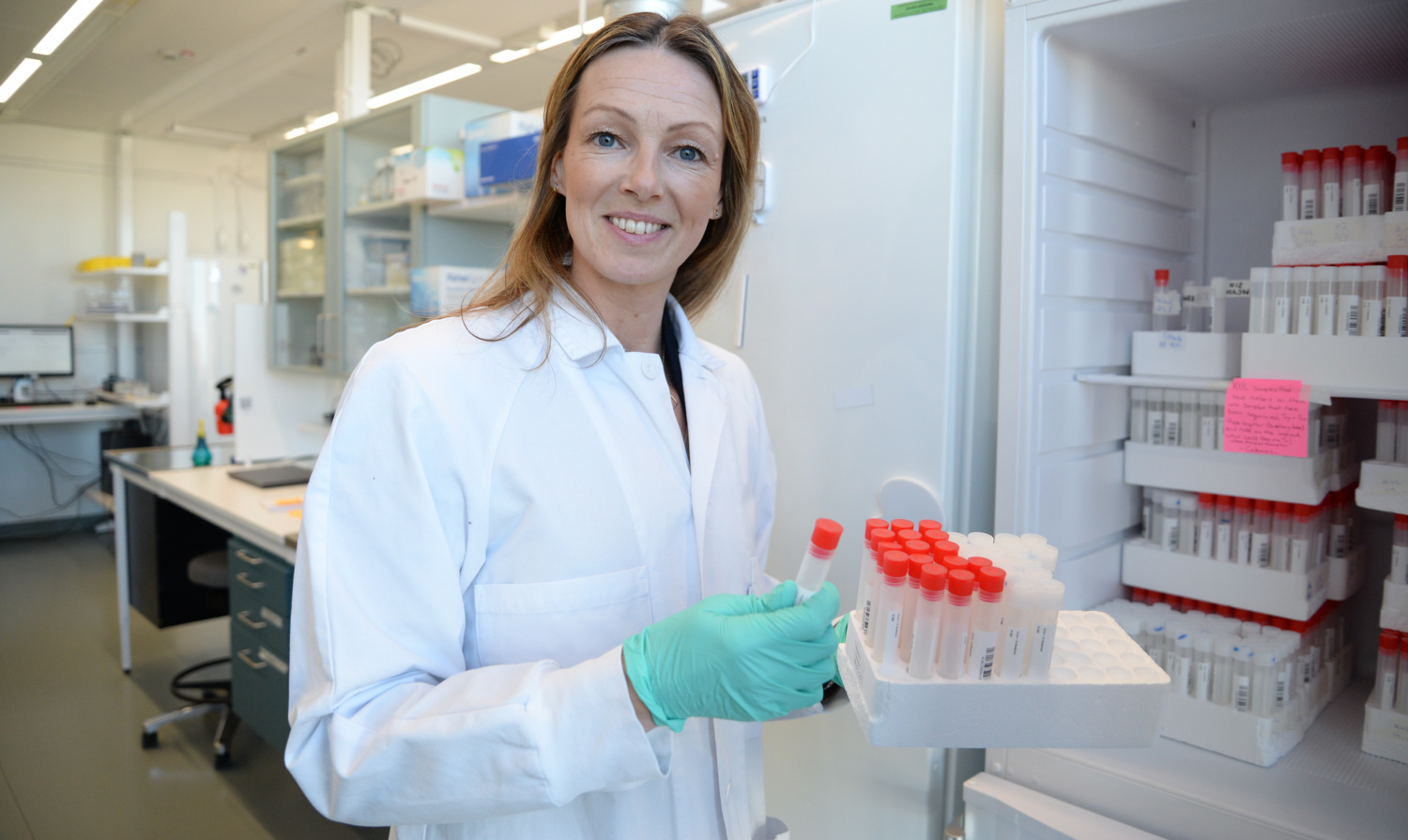Biobanks, registries and epidemiology
Sweden is uniquely positioned for the pursuit of epidemiological research thanks to our long tradition of personal identity numbers, and access to national demographic and health registries. In addition, KI has globally unique resources in biobanking and longitudinal cohorts, as well as expanding competence in biostatistics. This puts our university at the front line of medical epidemiological research in an international perspective.

Biostatistics Core Facility
The Biostatistics Core Facility provides biostatistical collaboration and support to medical and public health research, to ensure that experimental designs, data analyses, interpretation and dissemination of research findings take advantage of the most efficient and innovative methods in biostatistics.
Dental Biobank
KI-Dental Biobank at the Department of Dental Medicine in Campus Flemingsberg consists of registered sample collections of biological material including blood plasma/serum, saliva samples, gingival crevicular fluid, plaque samples and microdialysis samples obtained from patients with various oral diseases.
The Developmental Tissue Bank Core Facility
The Developmental Tissue Bank Core Facility provides research groups with defined human embryonic and fetal tissue (“prenatal tissue”), derived from routine abortions, through a collaboration with various clinics. After the tissue is transferred to the facility, we determine the developmental stage, identify the retrieved tissue, perform any necessary dissection, and process the tissue as agreed with the user.
KI Biobank
KI Biobank Core Facility, located at the university’s north campus in Solna, is a modern, high‑tech infrastructure for the pre-analytical handling, storage, and distribution of human biological samples. The facility provides services for the collection, handling, storage, and traceability of biobank samples, and supports customers both within and outside Karolinska Institutet.
LifeGene
LifeGene is a national collaborative project, designed to build up a resource for research in all medical disciplines by combining a biological perspective with e-epidemiology. The project will include several hundred thousand research subjects over a period of 30 years, enabling new findings and better understanding of the relationship between heredity, lifestyle and the environment as regards to our most common diseases.
National E-infrastructure for Aging Research
The National E-infrastructure for Aging Research (NEAR) is a consortium of 8 Swedish universities, including Karolinska Institutet, and is financed by the Swedish Research Council. This research infrastructure coordinates 15 databases from major population-based longitudinal studies on aging and health in Sweden. NEAR data are collected by trained nurses, psychologists, physicians, and interviewers. The availability of biomedical, psychological, and social data in such a large older population makes NEAR unique and original.
Swedish Twin Registry
The Swedish Twin Registry Core Facility is a unique database and (inter)national resource. Established in the 1960s, this registry contains information about some 85 000 twin pairs for which zygosity is known, both mono- and dizygotic pairs. The STR is receptive to collaboration with academic and industry-based researchers.
How to book a core facility
iLab booking system for core facilities
Already know what you are looking for? Login to our booking system in iLab and make a reservation. You need a digital SWAM-ID from a Swedish university (the KI-ID at Karolinska Institutet) to login. It is also possible to register for an account as an external user.
Please note that all core facilities at KI are not available in iLab. Visit their webpages to find out.
Single point of contact
Didn't you find what you were looking for or are you unsure about which core facility to contact about a specific tool or analytic method? The KI SPOC for research infrastructure can be of assistance.
Please note that researchers within KI and Region Stockholm have priority.
More resources in this area
News
 Photo: Fredrik Persson
Photo: Fredrik PerssonKI Biobank turns 20: “A goldmine for researchers”
The KI Biobank in Solna turns 20 this year. No fewer than 8.5 million samples from 750,000 individuals are preserved in its freezers. “The biobank is absolutely crucial to meeting tomorrow’s research needs,” says Sanela Kjellqvist, head of the KI Biobank.
 Photo: Andreas Andersson
Photo: Andreas AnderssonAccess to 1.5 million Swedish COVID-19 samples for research
Thanks to a unique collaboration with the Swedish regions and the National Pandemic Center (NPC) at Karolinska Institutet, Biobank Sweden is launching a national COVID-19 sample collection for research.
